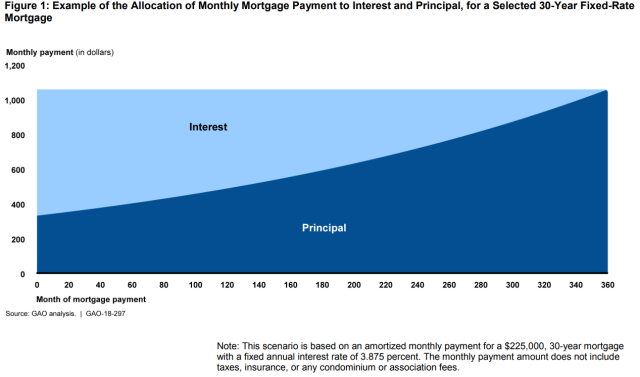Simple Walkthrough for Applying for Equity Release Mortgages
Just How Equity Release Mortgages Can Effect Your Financial Future and Retired Life Plans
Equity Release mortgages present both chances and obstacles for people preparing their financial futures and retired life. They can supply prompt liquidity, easing the burden of living costs. However, these products also diminish the value of estates, impacting inheritance for successors. Understanding the subtleties of equity Release is necessary. As people explore their options, they have to think about the more comprehensive ramifications on their monetary health and wellbeing and legacy. What decisions will they face in this complex landscape?
Understanding Equity Release Mortgages: What You Need to Know

Kinds Of Equity Release Products Available
Equity Release items come in various forms, catering to different needs and choices of house owners. Both main types are lifetime mortgages and home reversion plans.Lifetime home mortgages permit homeowners to borrow versus their property while keeping ownership. The finance, plus rate of interest, is normally settled upon death or when the home is sold. This option supplies versatility and enables continued residence in the home.Conversely, home reversion intends involve selling a part of the property to a company for a round figure or normal settlements. The house owner keeps the right to live in the home up until they die, yet the copyright gains ownership of the sold share.Both items have special advantages and factors to consider, making it essential for people to evaluate their financial scenarios and lasting objectives prior to continuing. Understanding these choices is essential for informed decision-making relating to equity Release.
Exactly How Equity Release Can Provide Financial Relief in Retired Life

Immediate Cash Money Access
Lots of senior citizens face the challenge of handling fixed incomes while steering climbing living expenses, making instant money gain access to a vital factor to consider. Equity Release mortgages offer an effective service, enabling home owners to access the value of their buildings without the requirement to market. This economic mechanism makes it possible for senior citizens to access a lump sum or routine payments, giving them with the necessary funds for everyday expenses, unexpected costs, or also pastime. By taking advantage of their home equity, retirees can relieve monetary anxiety, maintain a comfortable lifestyle, and protect their savings for emergency situations. Immediate money accessibility through equity Release not only boosts financial flexibility yet likewise encourages retired people to enjoy their retirement years with greater assurance, devoid of immediate financial restrictions.
Financial Obligation Loan Consolidation Benefits
Accessing prompt money can dramatically boost a senior citizen's financial situation, yet it can additionally serve as a calculated device for managing existing financial obligations. Equity Release home mortgages give an opportunity for retired people to take advantage of their home equity, supplying funds that can be utilized to settle high-interest financial debts. By repaying these debts, senior citizens might decrease regular monthly economic burdens, allowing for an extra manageable budget. This method not only simplifies funds however can additionally improve general economic stability. Additionally, the money acquired can be designated toward necessary expenditures or investments, further sustaining retired life plans. Eventually, using equity Release for financial debt consolidation can bring about substantial long-lasting monetary alleviation, allowing senior citizens to appreciate their gold years with better peace of mind.
The Effect of Equity Release on Inheritance and Estate Planning
The choice to use equity Release can considerably alter the landscape of inheritance and estate preparation for people and their families. By accessing a portion of their home's value, property owners may greatly minimize the equity available to pass on to beneficiaries. This selection can create an intricate dynamic, as individuals need to weigh prompt monetary demands against long-term legacy goals.Moreover, the funds launched via equity can be made use of for different objectives, such as enhancing retirement way of livings or covering unanticipated expenditures, but this typically comes at the cost of future inheritance. Family members may face hard conversations relating to expectations and the effects of equity Release on their monetary legacy.Additionally, the commitments linked to equity Release, such as repayment problems and the possibility for reducing estate value, call for careful consideration. Eventually, equity Release can improve not just monetary circumstances but likewise family partnerships and expectations bordering inheritance.
Tax Implications of Equity Release Mortgages
The tax obligation effects of equity Release home mortgages are crucial for house owners considering this alternative. Particularly, resources gains tax obligation and estate tax can considerably affect the monetary landscape for people and their successors (equity release mortgages). Comprehending these factors to consider is essential for effective monetary planning and administration
Resources Gains Tax Obligation Factors To Consider
While equity Release home loans can provide house owners with instant financial alleviation, they likewise bring potential tax implications that should be meticulously thought about. One vital element is resources gains tax obligation (CGT) When a homeowner releases equity from their residential property, they might encounter CGT if the property worth boosts and they decide to market it in the future. The gain, which is computed as the distinction between the selling rate and the original purchase cost, is subject to tax obligation. However, house owners can benefit from the key home relief, which may excuse a portion of the gain if the residential or commercial property was their primary home. Comprehending these nuances is vital for property owners preparing their monetary future and assessing the long-term effect of equity Release.
Estate Tax Ramifications
Thinking about the possible ramifications of estate tax is essential for property owners choosing equity Release mortgages. When house owners Release equity from their residential or commercial property, the amount withdrawn may influence the value of their estate, possibly boosting their inheritance tax liability. In the UK, find estates valued over the nil-rate band limit undergo inheritance tax at 40%. As a result, if a house owner makes use of equity Release to money their retirement or other expenses, the remaining estate may significantly decrease, impacting recipients. Home owners must think about the timing of equity Release, as early withdrawals can lead to higher tax effects upon fatality. Hence, comprehending these aspects is important for efficient estate preparation and guaranteeing that recipients receive their desired tradition.

Assessing the Dangers and Advantages of Equity Release
Equity Release can supply considerable monetary benefits for property owners, yet it is vital to evaluate the involved dangers prior to continuing. Look At This Among the main advantages is the capacity to accessibility tax-free cash money, making it possible for people to money their retirement, make home enhancements, or aid relative monetarily. The ramifications on inheritance are considerable, as releasing equity minimizes the value of the estate passed on to heirs.Additionally, rate of interest rates on equity Release items can be higher than conventional mortgages, leading to boosted financial obligation over time. Property owners have to additionally consider the prospective influence on means-tested advantages, as accessing funds may influence qualification. Additionally, the complexity of equity Release items can make it challenging to understand their long-lasting implications totally. As an outcome, while equity Release can give prompt economic relief, a complete evaluation of its benefits and dangers is important for making well-informed decisions about one's economic future
Making Educated Choices Concerning Your Financial Future
House owners encounter a wide range of selections when it comes to managing their financial futures, especially after considering alternatives like equity Release. Enlightened decision-making is vital, as these options can greatly affect retirement strategies and general economic health. Homeowners need to begin by extensively investigating the implications of equity Release, including possible impacts on inheritance and future treatment prices. Engaging with economic consultants can give tailored insights, allowing individuals to comprehend the long-lasting repercussions of their decisions.Moreover, homeowners have to consider different choices, such as scaling down or various other types of funding, to establish one of the most suitable course. Reviewing one's monetary situation, including debts and properties, is crucial for making a well-rounded decision. Inevitably, a mindful evaluation of all available alternatives will certainly equip house owners to navigate their monetary futures confidently, ensuring they straighten with their retirement objectives and personal aspirations.
Frequently Asked Questions
Can I Still Move Home if I Have an Equity Release Home Loan?
The person can move home with an equity Release home mortgage, but should comply with details loan provider conditions. This commonly involves paying back the existing mortgage, which might affect their financial scenario and future plans.
Exactly How Does Equity Release Affect My State Benefits Eligibility?
Equity Release can affect state benefits qualification by enhancing assessable earnings or funding. People may experience reductions in benefits such as Pension plan Credit History or Housing Advantage, potentially influencing their total financial support throughout retired life.
What Happens if I Outlive My Equity Release Plan?
The home loan generally remains in effect until their passing away or moving right into long-lasting care if a private outlasts their equity Release plan. The estate will be in charge of settling the financial debt from the home's value.
Can I Settle My Equity Release Home Loan Early?
Repaying why not try here an equity Release home loan very early is generally feasible yet might involve fines or charges. Borrowers need to consult their lender for specific terms, as each strategy varies in conditions regarding very early repayment alternatives.
Are There Age Limitations for Requesting Equity Release?
Equity Release typically enforces age constraints, usually requiring applicants to be at the very least 55 or 60 years of ages. These limitations ensure that individuals are coming close to retired life, making the plan extra ideal for their monetary scenario.
Conclusion
In summary, equity Release home loans offer a prospective monetary lifeline for retired people, offering prompt cash money access to improve lifestyle. They come with substantial factors to consider, including impacts on inheritance, estate preparation, and tax obligation responsibilities. Extensively assessing the risks and advantages is important for guaranteeing that such choices align with long-lasting monetary goals. Consulting with a monetary advisor can help people browse these complexities, ultimately supporting an extra safe and secure and enlightened monetary future. Equity Release home mortgages are monetary products created for property owners, usually aged 55 and over, permitting them to access the equity tied up in their residential property. Equity Release home mortgages offer a possibility for retirees to tap into their home equity, using funds that can be made use of to combine high-interest financial debts. Households might deal with tough discussions pertaining to assumptions and the ramifications of equity Release on their monetary legacy.Additionally, the commitments connected to equity Release, such as payment conditions and the capacity for reducing estate worth, call for cautious consideration. While equity Release home mortgages can give house owners with prompt financial alleviation, they also carry potential tax obligation implications that should be meticulously considered. The ramifications on inheritance are considerable, as launching equity minimizes the worth of the estate passed on to heirs.Additionally, interest rates on equity Release products can be greater than typical home mortgages, leading to raised debt over time.